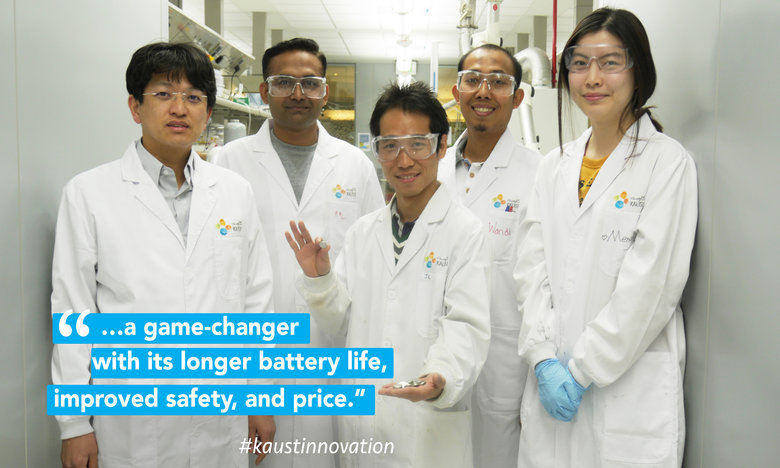A new flexible lithium sulfur battery developed at KAUST could significantly improve the battery life and safety of rechargeable batteries.
The technology has been developed by the team led by Lain-Jong Li, an associate professor of material science and engineering at KAUST, and several patents are pending.
Current Technologies are Problematic
Existing re-chargeable batteries have a number of disadvantages. They are usually comprised of lithium, metal oxide and graphite. Low capacity (the electricity per gram a battery can hold) in these batteries is an ongoing problem, and they can often quickly lose their capacity to fully recharge.
To increase capacity, battery developers can increase the weight of the battery to hold more electricity, but heavy batteries are not popular with consumers who prefer mobile and easy-to-carry electronic devices. Many rechargeable batteries can also be dangerous as lithium in the anode can be punctured and may explode.
Sulfur is a promising ingredient for rechargeable batteries and quite plentiful in Saudi Arabia where it is a natural byproduct from the oil and gas refining process.
However, using sulfur in battery cathodes can be problematic as it can be dissolved and lost in electrolytes, leading to capacity decrease. In some rechargeable batteries, sulfur in the cathode of the battery can be treated with polymers to slow down this process, but it is very expensive.
Safer and with a Longer Battery Life
Professor Li, whose research focuses on lithium ion batteries, hydrogen generation and future electronics, has addressed these challenges by developing a flexible lithium sulfur battery that integrates a high percentage of sulfur in the cathode with up to 50 times less lithium in the anode.
The result is a battery with significantly increased energy density and a much longer battery life. In addition, the battery is small, flexible, safer than existing rechargeable batteries and cheap to produce.
“This battery could be a game-changer with its longer battery life, improved safety and price,” said Professor Li. “Working within KAUST’s innovation ecosystem and state-of-the-art labs has allowed us develop a proof of concept, and we look forward to further scaling up this technology.”
For more information on this technology, please click here.

